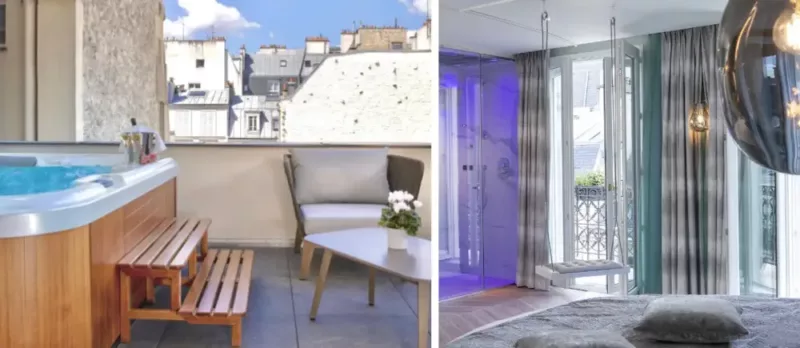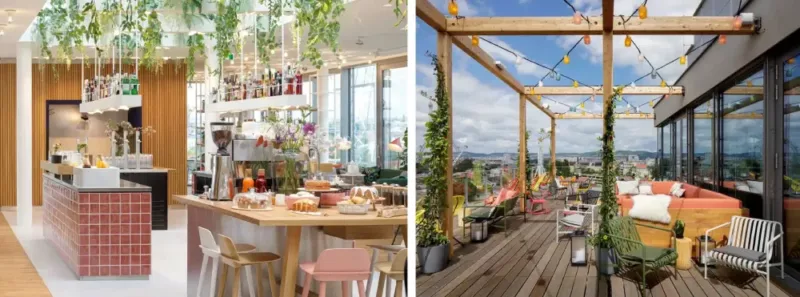
There are many challenges faced by the hotel industry, which may quickly feel overwhelming to address.
NB: This is an article from Xotels
Summer 2022 has seen tourism soar once more, as wanderlust returns to holidaymakers and travellers eager to make up for lost time during the pandemic-induced periods of lockdown and travel restrictions. Many challenges in the hotel industry remain, though. However, with an informed strategic approach, hotel managers can meet these challenges head on and drive their business’s performance to new heights.
Subscribe to our weekly newsletter and stay up to date
1. Experience & Personalization: Meeting the Needs of the Modern Guest
It simply isn’t enough to look the part anymore as a hotel. While image, offering comfort and nice hotel appointments is important, customers increasingly want a complete guest experience and personalization from their hotel.
To drive true personalization, the right data management technologies can do most of the work for you, while effectively capturing, storing, analyzing, and interpreting each customer’s data on a micro level, while also spotting trends on a macro level. Experience and personalization are the new battlegrounds between competitor hotels. Whoever is able to deliver on both fronts will stand to gain, in a fiercely competitive market.

2. Hiring the Right Employees
From the ostensibly lower-skilled roles such as waiter to specialist roles like treasury or accounting employees, it is becoming more difficult to hire well in the hotel industry. As any good hotel manager knows, it is relatively straightforward to hire bar and restaurant staff, but finding truly good waiting staff is a very difficult task. Moreover, getting them to stick around for long is another key task.
Put simply, organisations of all industries are finding it more difficult to hire and retain good employees because workers are more demanding of what they want from an employer. By embracing this change rather than resisting it, your hotel will already be one step ahead of your competitors.
By offering more than just a wage and offering a whole career package, your hotel can attract and retain top professionals. This package may include a commitment to true career progression, ongoing training, and real benefits such as medical insurance, stock options, travel expense coverage, and so forth. Frankly, things such as a ping pong table and some fresh fruit once a week are not benefits, they are now expected bare minimum.
Workers want to work for an employer that offers a whole package and where they can feel like they are part of something that they believe in. This latter point ties into point one too: a mission that includes providing a true and unique experience to guests, workers can, by extension, feel that they are part of something that provides a highly valued service to people.
3. Continuously Changing Consumer Demands & Markets
Of course, it is more difficult to plan when your market is liable to change. Predictability makes business much more straightforward. For instance, business travel has been slower to recover, in large part due to the migration to remote and hybrid working. 16% of companies worldwide are fully remote, whereas 58.6% of the entire US workforce is remote. Moreover, these figures are only set to trend up further, with 78% of companies expecting this shift to continue. However, there is opportunity for those willing to embrace it in this market development.

As an example, hotels can offer a working space experience to attract clientele. Rooms and hotel spaces such as conference and meeting rooms can be converted into coworking spaces. The key is to be agile in order to respond to market shifts well. The pandemic witnessed a lot of hotels going out of business or experiencing a massive downturn in customers, as a result of a failure to adapt to the shift from international to local and national tourism.
The pandemic illustrated exactly how vulnerable hotels are to factors outside of their control. With this in mind, a way of generating greater business resilience and business continuity is to focus on local customs. This could be the local area or further afield to neighbouring towns and cities with experiential staycations, whether for individuals, couples, or families. Between 2020 and 2021, staycation bookings rose 18%.
Getting the experience right leads to a 14% price premium in the hotel industry, according to PwC. Additionally, in the off-season, hotels can drive occupancy rates by delivering an outstanding experience to the local market.
Some tips to achieve this include:
- Designing a resilient and updated hotel business plan
- Analyzing the entire business to improve business agility and future-proofing it against potential downside risk
- Optimizing for different guest buyer personas and reimagining hotel spaces for different uses, such as turning your underused hotel space into a coworking area






